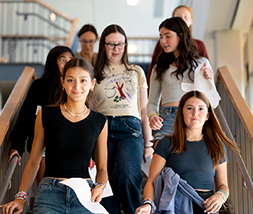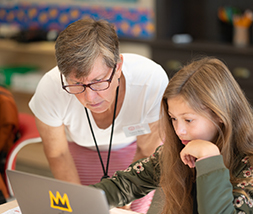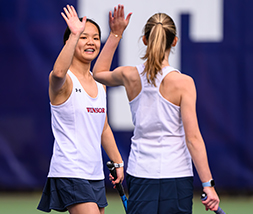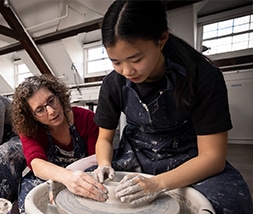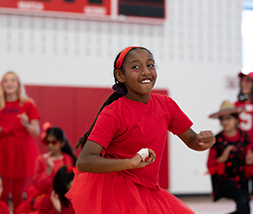Curriculum Guide
Science
Class I
By becoming naturalists, Class I students learn to observe their natural surroundings and gain an appreciation for the interconnectedness of all organisms. Students learn to make and record observations using words, numbers, and drawings, as they keep a year-long nature journal. By tracking local ecosystems over time, students observe the changes that take place and collect data that may contribute to citizen science efforts. They further survey these contributions through case studies of well-known female naturalists. Students explore aspects of ecology as well as the classification and diversity of major groups of organisms with an emphasis on comparing and contrasting organismal body plans. Students undertake a deep dive into environmental justice and access to green spaces, gaining an appreciation for TEK (Traditional Ecological Knowledge) and the relationship between Indigenous peoples of Massachusetts and the land. Along the way, students encounter simple machines and consider their role in their everyday lives.
Class II
In Class II Science, students undertake a guided inquiry of the human body starting at the cellular level and work up in scale to the systems level. Through many laboratory, engineering, research, and modeling exercises, students develop a rich and hands-on understanding of how the digestive, respiratory, circulatory, and musculoskeletal systems connect and interact to keep us alive. Basic Mendelian genetics are also introduced so students can understand how traits are inherited. Students will develop laboratory skills and learn to demonstrate their understanding in writing with scientific arguments.
Class III
In Class III Science, students develop an understanding of the Earth and life by exploring how the past can be used to inform our present and our future. Students examine “how science works” in the context of case studies involving major moments in the history of science. Through inquiry-based activities and modeling, students are exposed to a range of topics in Earth and life science including geologic time, the Earth’s interior, seismology, plate tectonics, evolution by natural selection, and global climate change. Students build an understanding of concepts, solve problems, and apply their knowledge to new situations. Students learn to demonstrate their understanding through the use of the Claim, Evidence, and Reasoning (CER) format for written explanations.
Class IV
Class IV Science is a laboratory-based course in which students develop an understanding of the physical properties of matter and the forces that affect them.Throughout the year, students develop essential laboratory skills, engage in hands-on experimentation, and apply problem-solving strategies to analyze and interpret data. A key emphasis is placed on constructing scientific explanations through written reports supported by evidence and reasoning. As a culminating group project, students use their understanding of properties of matter in a collaborative exercise in which they separate and analyze the composition of an unknown mixture. Students close the year investigating the fundamentals of atomic structure and different topics in physics.

